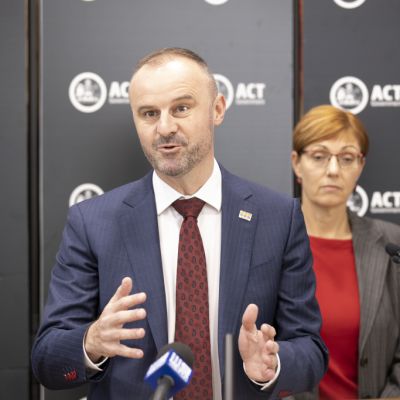Next phase of tax reform program to begin: ACT government

The ACT government has reached the halfway mark of its 20-year tax reform program and will commence the next five-year phase during the new financial year.
In the next stage of the tax reform, general rates increases will be lower than the increases in the previous phases of the program. The average household general rates will increase by 3.75 per cent.
This comes after the territory government announced the pensioner rates rebate cap would increase by $50, to $750 in the next financial year, supporting 15,000 households; and 31,000 households will receive an increase in utility concessions from $700 to $800 in 2021-22.
“With a number of economic indicators showing a solid economic recovery, in 2021-22, the ACT government is focusing additional financial support on those who need it most,” ACT chief minister Andrew Barr said.
“As part of this, the ACT government will reduce the fixed-charge component of household rates, meaning lower increases for properties with lower unimproved values. This will further increase the progressivity of our tax system.”
Canberrans have been stung with rates increases after the territory government decided to abolish stamp duty altogether in favour of a broader property tax system. The 20-year plan has been underway since 2012.

To date, stamp duty has been abolished for first-home buyers on any residential property, as long as their annual household income is less than $160,000. Stamp duty was also dumped for commercial properties of $1.5 million or less.
In 2020, at the peak of COVID-19, 165,000 residential ratepayers received a one-off $150 rates rebate, and for almost two-thirds of Canberra residential property owners – 110,000 households – rates did not increase.
“With increased economic resilience and activity, this universal rebate will not be continued in 2021-22. Instead, the reforms outlined … will target ongoing support where it is needed most at this time,” Mr Barr said.
More cuts to stamp duty will be announced at the start of the new financial year, Mr Barr added.
“By abolishing inefficient taxes, such as stamp duty, and replacing this revenue with our fairest and most efficient tax base, we increase economic activity and the productive capacity of the economy,” he said.
“A more stable revenue base also allows for the planning of long-term investments in key services such as health, education, community services and transport.”
We recommend
We thought you might like
States
Capital Cities
Capital Cities - Rentals
Popular Areas
Allhomes
More










